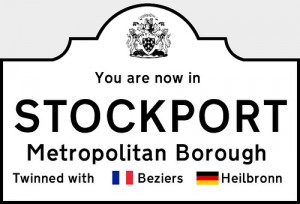 Counselling Stockport
Counselling Stockport
It’s been a while since I have written a blog post and so I thought it might be useful to bring things up to date on what’s going on with me providing counselling Stockport. I hope this helps those who are unsure of who I am or how counselling or therapy can help them. In this post I also want to answer the most common questions I get asked about the counselling process. Please email me using my contact form if you have any questions I do not answer in this post.
Who am I?
My name is Ian Tomlinson and I am a counsellor in Stockport. I have run Manchester Psychotherapy for the last four years and enjoy being a therapist immensely. I also work part time as a teacher in Secondary Education and feel that this fits very well with my role as a therapist.
Both jobs are about relationships, both jobs are about bringing the best out in people and both jobs require empathy, kindness and a good sense of humour. It’s pretty common for therapists to work part time and this may well be something to do with the solitary nature of the job. Full time therapists have the potential to be on their own a lot and need to plan strategies to deal with this.
For me, I have a close group of colleagues that I work with on a daily basis and around seven hundred little people that are very happy to “keep things real” for me!
Counselling Stockport For Individuals
My Practice is currently about 50% individuals work and 50% couples work. I tend to work with people over a long period of time but I have worked with clients for as little as eight weeks and they have experienced massive change and not needed to come to therapy after that.
I guess this answers a commonly asked question, “how long will I need to be in therapy for?” The answer is often “as long as you need to be”.
I have found with my own therapy that sometimes I am in the right place for it and it helps enormously and at other times I feel that I have taken what I need from it and it is time to stop. You will know when the time to stop is right for you.
There are occasions where I will suggest to a client that they are ready to stop coming. When we have worked effectively and made the changes set out in the therapeutic contract then it could be time to give therapy a rest for a bit and recalibrate.
What issues do I work with when providing counselling Stockport?
Again, this is another common quesiton from people who are interested in coming for counselling in Stockport with me. I have dealt with a whole spectrum of issues, from depression, stress, anxiety, gender identity, anger management issues, jealousy and other’s I have probably forgotten to put in the list!
Often what a client comes with and what we end up talking about are very different. This is because our stresses and strains can manifest themselves in a multitude of ways.
Men’s issues
I do spend a lot of time working with men and men’s issues. Many men find talking to a counsellor challenging in itself, so to be able to talk to a male therapist takes some of the anxiety away. I have blogged extensively about how rubbish us men can be at dealing with emotional issues and unfortunately it does cost us dearly. Suicide rates amongst young adult males are the highest out of all other groups and the prison population is over 90% male. The sooner we are able to learn that the most powerful men are those that can deal with their emotions effectively, the better.
I regularly work with sexual minority clients too. Gay men and lesbians form a significant percentage of my client base and I am a gay affirmative therapist. This means that I will never question an individuals sexuality and see gay and straight as normal as each other (what is normal anyway?). I have a good understanding of issues faced by the LGBT community and am used to dealing with these. It may be that sometimes, as a straight man myself, I need information from my clients to help me with understanding the finer details of an issue or situation, but I find I learn from all my clients and this is one of the most enjoyable parts of being a therapist for me.
How to start
So if you were to want to come to my counselling Stockport service then what should you do? Firstly get in contact by ringing me on 07966 390857 or email me using my contact form. From there we will have an initial meeting and I will ask you what brings you into therapy and how you think I can help you. You will have an opportunity to ask me any questions you have about who I am or how I work and I will talk through the business contract and ask you a few standard intake questions (name, address, doctors address – the usual therapy stuff).
From there we will go on a journey together. I won’t be telling you what to do or what to think but I may challenge negative beliefs you have had for years or give alternative ways of doing things.
With some clients I will be very structured and provide a clear framework, others require time to explore what’s going on for them and time to reflect.
Take a leap of faith – it may change your life.
Going to a counsellor or therapist in Stockport can require serious bravery. I can remember skulking around the front door of my first therapist, not sure of what I would find but with a deep need to talk to someone about things that were going on for me that were causing me great anxiety. I could see myself repeating the same negative patterns in my life and I was fed up of shooting myself in the foot.
Therapy changed my life. It gave me a new way of seeing the events that had taken place and a new way or relating to the most important people in my life. The counselling I had made such an impression that I got interested in the subject and here I am, nearly twenty years later, helping others change their lives.
So take a leap of faith, give me a ring on 07966 390857 and make an appointment. I get that you may be nervous and I can assure you that I will look after you throughout the process.
How has counselling made a difference to your life?
If you are reading this post having experienced counselling please comment below and let me know how it made a difference to you. What was the key moment for you? What would you say to others who are unsure about picking up the phone and making an appointment?
If you have any questions about me and the counselling Stockport service please get in touch and I will get back to you qucikly.
 Anger as an emotion has had a great deal of bad press through the years. It’s one of those emotions that people shy away from and never really use to describe anyone in a positive light. Anger is, however, just another emotion.
Anger as an emotion has had a great deal of bad press through the years. It’s one of those emotions that people shy away from and never really use to describe anyone in a positive light. Anger is, however, just another emotion. As a therapist I spend a great deal of my time talking to clients about their emotions. For some clients this is no problem, they live in an emotional world. For others I can ask what they are feeling and I see a look of confusion descend. Some of us are good with emotions; some of us are good at hiding them. We all have them.
As a therapist I spend a great deal of my time talking to clients about their emotions. For some clients this is no problem, they live in an emotional world. For others I can ask what they are feeling and I see a look of confusion descend. Some of us are good with emotions; some of us are good at hiding them. We all have them.